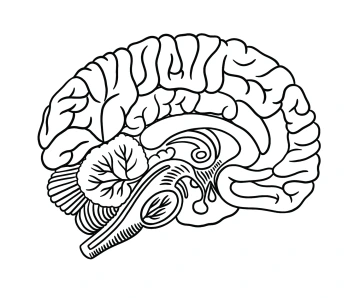A Personalized Approach to Aging Brain Health
A precision-aging model helps researchers understand and treat age-related cognitive decline.
People are living longer than ever, but brain health isn’t keeping up. Now, a team of researchers has proposed a new model for studying age-related cognitive decline — one that’s tailored to the individual.
There’s no one-size-fits-all approach to aging brain health, says Lee Ryan, head of the University of Arizona’s Department of Psychology and associate director of the UA’s Evelyn F. McKnight Brain Institute.

In a new paper published in the journal Frontiers in Aging Neuroscience, Ryan and her co-authors advocate for a more personalized approach, using the principles of precision medicine to better understand, prevent and treat age-related cognitive decline.
“Aging is incredibly complex, and most of the research out there was focusing on one aspect of aging at a time,” Ryan says. “What we’re trying to do is take the basic concepts of precision medicine and apply them to understanding aging and the aging brain.
“Everybody is different, and there are different trajectories. Everyone has different risk factors and different environmental contexts, and layered on top of that are individual differences in genetics. You have to really pull all of those things together.”
Although only about 15% of older adults will experience Alzheimer’s disease in their lifetimes, some level of cognitive decline is considered a normal part of aging. The majority of people in their 60s or older experience some cognitive impairment, Ryan says. This not only threatens older adults’ quality of life but also has socioeconomic consequences, including hundreds of billions of dollars in health care and caregiving costs as well as lost productivity.
Ryan and her co-authors have a lofty goal: to make it possible to maintain brain health throughout the entire adult lifespan.
In their paper, the researchers present a precision aging model as a starting point to guide future research. It focuses on three areas: broad risk categories, brain drivers and genetic variants.
An example of a broad risk category for age-related cognitive decline is cardiovascular health, which has been linked to brain health. That broad category includes several individual risk factors, such as obesity, diabetes and hypertension. Brain drivers are the biological mechanisms through which individual risk factors, like diabetes, actually impact the brain.
The third area considered by the model is genetic variants, which can increase or decrease a person’s risk for age-related cognitive decline. For example, there are genes that make it more or less likely that a person will get diabetes, sometimes regardless of their dietary choices.
While the precision aging model is a work in progress, Ryan and her collaborators believe that considering risk categories, brain drivers and genetic variants in combination is key to better understanding age-related cognitive decline and how to best intervene in different patients.
As advances in health and technology extend lifespan, Ryan says, it’s important for research on age-related cognitive decline to continue. “Kids that are born in this decade probably have a 50% chance of living to 100. Our hope is that the research community collectively stops thinking about aging as a single process and recognizes that it is complex and not one-size-fits-all.
“To really move the research forward you need to take an individualized approach.”
The UA is a foremost university for researching the aging brain and age-related cognitive changes. Ryan’s UA co-authors include Regents’ Professor of Psychology Carol Barnes, who directs the Evelyn F. McKnight Brain Institute, and professors Meredith Hay and Matthias Mehl. Other collaborators are from the Phoenix-based Translational Genomics Research Institute, Georgia Institute of Technology, Leonard M. Miller School of Medicine at the University of Miami and Johns Hopkins University.
